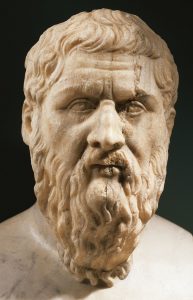


Plato
It is not possible to master critical thinking skills without a study of philosophy. This involves objective measuring and testing of ideas and then implementation of those ideas into set principles. While we often think this is what we do, it is usually that we approach implementation by first trying to fit the idea into principles without testing the idea. If we have trouble making those ideas “fit,” we often adjust the principles or alter them to fit the idea. If philosophy is approached objectively, then bad ideas are eliminated rather than adjusted, and principles are never changed to fit ideas. If your children are not mature enough to read Plato (especially Republic), then start with simple exercises. Example: you want to create a business, any kind will do. Discuss objectively what product you will create or distribute. Discuss how you will advertise and what kind of employees you’ll hire. What rules will you put in place for operations, for advertising, and for managing employees? This will lead to discussions of principles. Plato’s point in Republic is that societies need to do what is necessary for the Republic itself to survive, not what is necessary for all new ideas to survive. He means that the underlying principles of any republic must be kept intact. Plato also says that society without morality has no foundation principles (it takes away the foundation and puts nothing in its place).
Of course, Plato is much deeper than this little summary and delves into the human nature of decision making, showing that we choose leaders for all the wrong reasons. Even before the Bible told us that men will revile us for teaching the truth, Plato knows that men of principle are hated, even killed (read “The Cave” essay from the Republic).
I cannot stress enough that one study the objective philosophies of the ancients and avoid all modern philosophers (who often think that the principles are up for discussion as situation ethics) unless you have total confidence in the writer’s background. The well-taught “philosophers” of the last few centuries, Emerson, Thoreau, Voltaire, or Descartes, are not just atheists, but are haters of principles, especially those which come from any religious directive.
